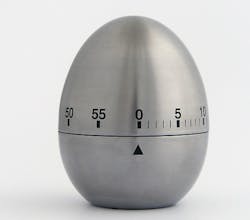Huawei receives another Temporary General License extension from U.S. Department of Commerce
The Bureau of Industry and Security (BIS) of the U.S. Department of Commerce has extended a Temporary General License (TGL) for Huawei Technologies Co. Ltd. and its non-U.S. affiliates to continue to buy U.S. source components and related technology. The TGL was issued shortly after Huawei was placed on the export Entity List; this is the third time it has been extended. However, this TGL extension lasts 45 days, half the number as previous extensions. The Department says it will use the 45 days to determine if other TGL extensions will be forthcoming.
The BIS placed Huawei on its Entity List in May 2019 (see “Huawei faces U.S. technology access ban”). Placement on the Entity List put Huawei under Export Administration Regulations that mandated U.S. companies apply for special licenses to sell their technology to Huawei. The action came as the result of charges that Huawei had violated restrictions on the export of U.S. sourced technology to Iran. The U.S. Justice Department recently filed superseding charges in Federal Court against Huawei on the matter (see “Justice Department files new Huawei charges”). Huawei has denied the allegations.
The licenses for which U.S. companies must apply in such circumstances are reviewed “under presumption of denial,” in the words of the Department. However, the U.S. Government signaled, against a backdrop of trade negotiations with China, that some technology might receive the necessary licenses (see “President Trump says he’ll allow some U.S. technology sales to Huawei”). More than 100 license applications were filed (see “U.S. Commerce Department reviewing more than 130 Huawei license requests: Reuters”); the adjudication of most of them remains unknown.
As has been the case with the three previous instances, the Department of Commerce stated that the most recent extension was necessary to give telecommunications service providers whose networks rely on Huawei technology to find replacements. The extension lasts until April 1, 2020.
For related articles, visit the Business Topic Center.
For more information on high-speed transmission systems and suppliers, visit the Lightwave Buyer’s Guide.
To stay abreast of fiber network deployments, subscribe to Lightwave’s Service Providers and Datacom/Data Center newsletters.

Stephen Hardy | Editorial Director and Associate Publisher, Lightwave
Stephen Hardy is editorial director and associate publisher of Lightwave and Broadband Technology Report, part of the Lighting & Technology Group at Endeavor Business Media. Stephen is responsible for establishing and executing editorial strategy across the both brands’ websites, email newsletters, events, and other information products. He has covered the fiber-optics space for more than 20 years, and communications and technology for more than 35 years. During his tenure, Lightwave has received awards from Folio: and the American Society of Business Press Editors (ASBPE) for editorial excellence. Prior to joining Lightwave in 1997, Stephen worked for Telecommunications magazine and the Journal of Electronic Defense.
Stephen has moderated panels at numerous events, including the Optica Executive Forum, ECOC, and SCTE Cable-Tec Expo. He also is program director for the Lightwave Innovation Reviews and the Diamond Technology Reviews.
He has written numerous articles in all aspects of optical communications and fiber-optic networks, including fiber to the home (FTTH), PON, optical components, DWDM, fiber cables, packet optical transport, optical transceivers, lasers, fiber optic testing, and more.
You can connect with Stephen on LinkedIn as well as Twitter.
